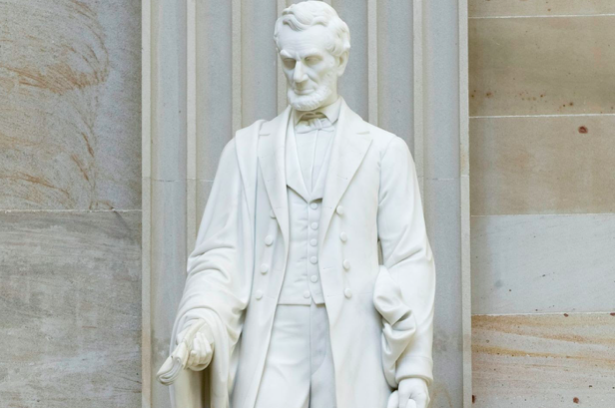No, We Shouldn’t Tear Down That Statue
Feb 4, 2021
Had you been white living in the American South before abolition, what would your position have been on the institution of slavery?
Princeton University Professor Robert P. George sometimes poses this question to his students. Their answer? They all would have been outspoken abolitionists who worked tirelessly to end the evil institution.
In a Twitter thread, George describes how such a response is nonsensical on its face. In reality, only a tiny fraction of them would have been abolitionists.
The professor outlines this point by stating:
“I will credit their claims if they can show evidence of the following: that in leading their lives today they have stood up for the rights of unpopular victims of injustice whose very humanity is denied, and where they have done so knowing:
- That it would make them unpopular with their peers
- That they would be loathed and ridiculed by powerful, influential individuals and institutions in our society
- That they would be abandoned by many of their friends
- That they would be called nasty names
- That they would risk being denied valuable professional opportunities as a result of their moral witness
In short, my challenge is to show where they have, at risk to themselves and their futures, stood up for a cause that is unpopular in elite sectors of our culture today.”
This thought experiment provides some perspective on those of the past. They didn’t have all the answers, just as we don’t today. But by George’s standards, many of our national heroes stood up against great injustice and institutional opposition.
That hasn’t stopped the increasing efforts by progressives and revisionists to take aim at removing statues of historical figures with controversial pasts.
Their efforts are naive. The political left views figures through a distorted lens that solely focuses on individuals’ shortcomings rather than their achievements and contributions to the freest country in the world. That isn’t to say we should ignore those shortcomings, because we certainly must be critical of those issues. It is to say we should view these figures holistically because they, like us, were human.
Do we stand in perfect judgment over the lives of those from the past?
Such notions are absurd. That is like saying, “They should have known what I know now,” or “They should have known the future.”
More Americans have started to support this mentality, especially because our society has deviated from facts and gravitated towards empathy. Younger generations are taught to believe left-wing conceptions of history that are predominantly inaccurate.
If everyone from the past was a bigot, why should I listen to or learn from them?
This mentality is destructive and quite harmful. We would not be where we are without the lessons of yesterday. Issac Newton recognized this reality and humbly said that we are “standing upon the shoulders of giants” because there is no intellectual progress without understanding accurate history. Rather than standing upon shoulders, many today believe they are flying. What have these entitled history erasers ever done themselves?
Leftists seem to believe they have moral superiority. How will posterity view our generation? We certainly are no angels.
While I stand opposed to the idea of tearing down statues, I am not referring to Confederate statues. The Confederacy upheld an evil ideology and sought the destruction of America.
I am, however, talking about American heroes such as Thomas Jefferson and Abraham Lincoln that have increasingly become targets of the left. What progressives fail to comprehend is that ideas they, and others, promoted during their time were revolutionary. The targeting they faced was much more threatening than a woke mob indoctrinated by lies (think: Professor George’s five points).
Attempts to cancel Jefferson stem from his ownership of slaves. Nobody is arguing that we ought to grant forgiveness upon Jefferson for his obvious sin. The actual argument is that we should not be fixated on a singular issue that clouds our judgment on his contributions to things such as political liberty and religious freedom.
Although hypocritical, Jefferson understood the moral evil of slavery and often made efforts to curb the institution on the American continent. Advocating against a Virginia slavery law in court, a young Jefferson in colonial America stated that under the laws of nature “all men are born free.” His biographer John B. Boles described how such views at that time and place were extremely radical.
In an undemocratic world, Jefferson proclaimed in the Declaration of Independence that “all men are created equal, that they are endowed by their Creator with certain unalienable Rights.” These words have had a profound impact on not only the United States but all those seeking freedom and equality around the globe.
America was able to strive towards a better tomorrow using Jefferson’s words. Leaders of future generations such as Abraham Lincoln, Frederick Douglas and Martin Luther King Jr. looked back on those ideals in an effort to fulfil that promissory note.
Statue removers have also set their sights on Abraham Lincoln, the same man who signed the Emancipation Proclamation which changed the legal status of enslaved African Americans in the Confederate states from enslaved to free, and the first American president to run on a platform opposed to the expansion of slavery.
Activists justify their attacks on Lincoln because they claim that he didn’t demonstrate that “Black lives mattered to him.” Historian Harold Holzer stated that “no one deserves more credit for the destruction of slavery. Lincoln is much more liberator than he is an abuser on the subject of racial justice.”
George Orwell’s “1984” presents a fictional world in which “every book has been rewritten, every picture has been repainted, every statue and street and building has been renamed, every date has been altered. … History has been stopped. Nothing exists except an endless present in which the Party is always right.” This is the illustration of a dystopian society led by “the Party,” which engages in the cancellation of anything that does not fit within its narrative.
Removing statues is a slippery slope that will lead to only the ugliest of outcomes. Let us be mindful of this dangerous path while recognizing holistic views of our historical figures.













